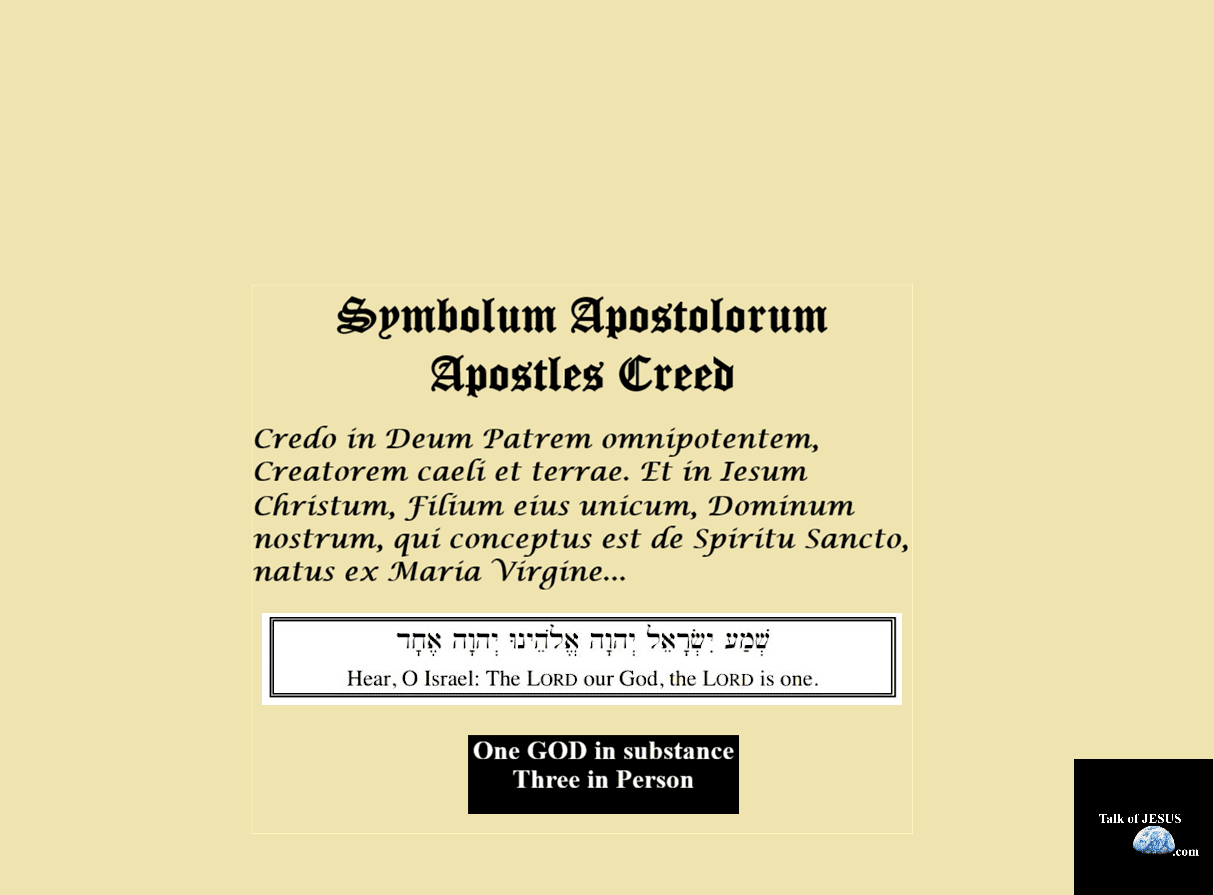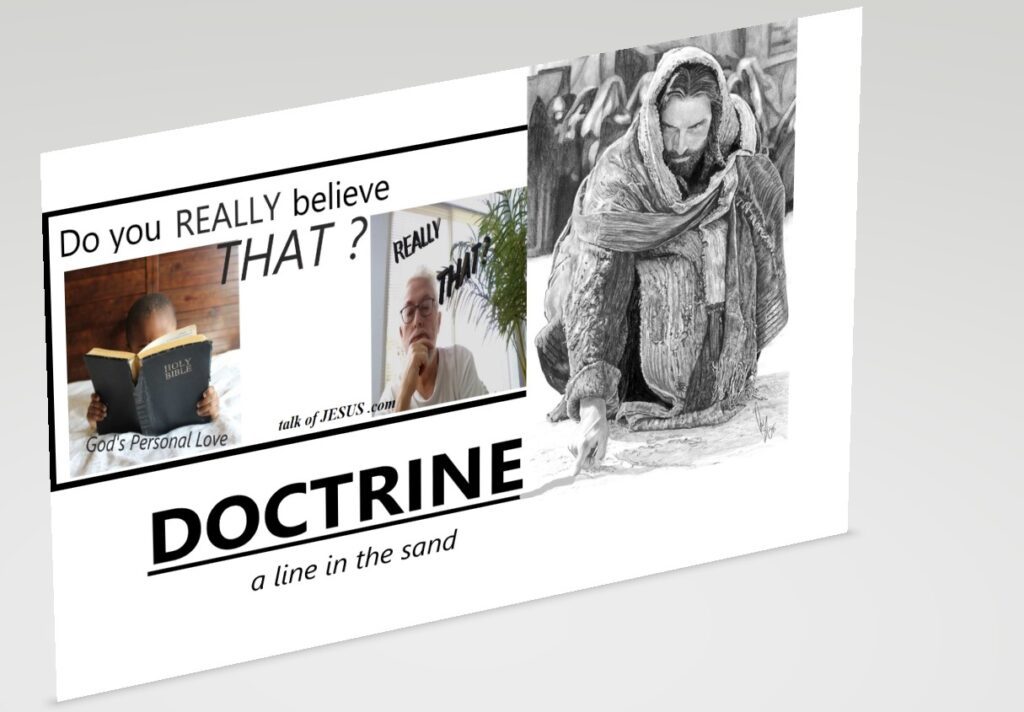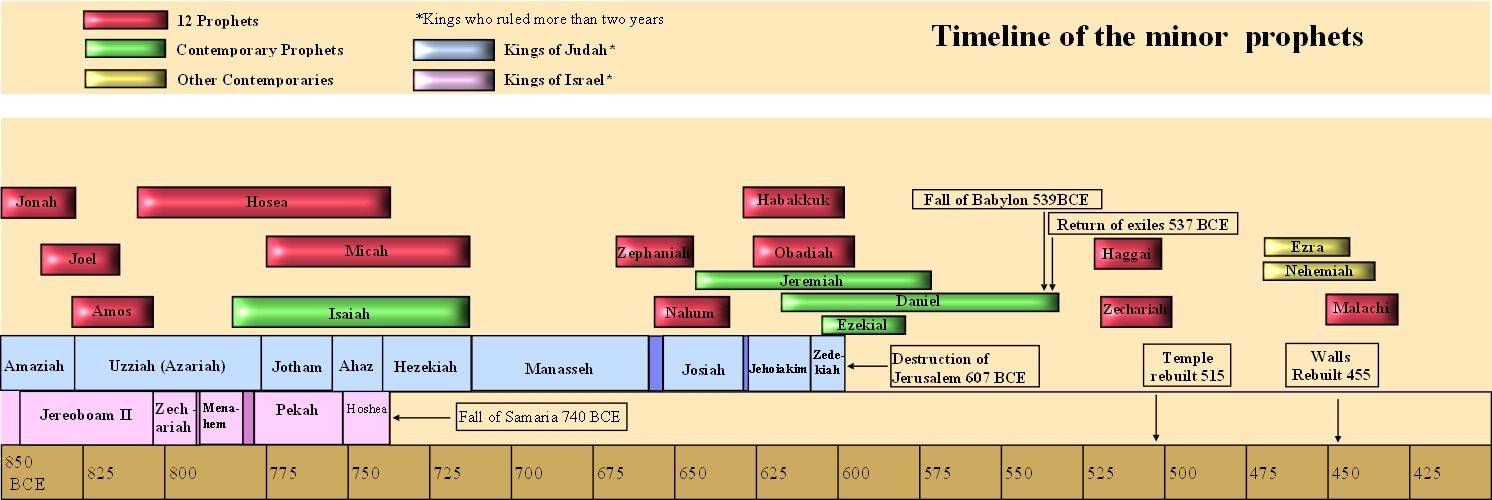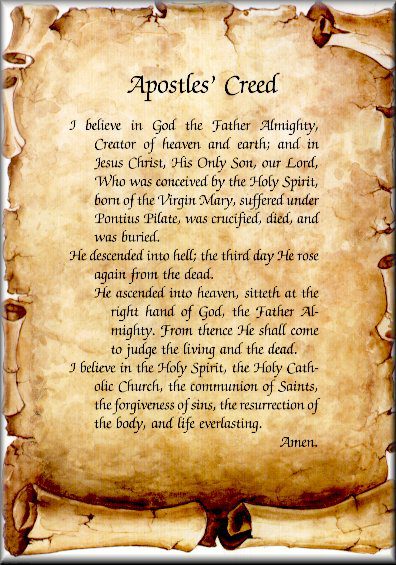
I believe in
God the Father Almighty,
What is God?
Q2 of the New City Catechism
Kid’s Answer:
God is the creator of everyone and everything.
Of course any simple or complex answer falls short of describing Almighty God. But the Apostles’ Creed adds:
Maker of Heaven and Earth.
In the beginning God created the heaven and the earth… And the Spirit of God moved upon the face of the waters. And God said, Let there be light: and there was light.
Genesis 1:1-3 excerpt KJV
The Lord God created every thing and all life!
God — ONE God.
There IS no other being — an Existing One — capable of speaking any created being of substance into existence.
Therefore, THE LORD GOD is neither plural, as in, “gods,” nor is ‘god‘ in all creation and creatures, as some falsely claim.
Hear – šāmaʿ -שְׁמַע
- Do you hear what I hear? – a well-known Christmas song
- You with ears to hear, let him hear… – Jesus, the Messiah
- Today, if you will hear His voice, do not harden your hearts as in the rebellion. – Hebrews 3:15
- And oft-repeated by sons of a chosen people of all the earth — our spoken truth of monotheism (One God worshiped):
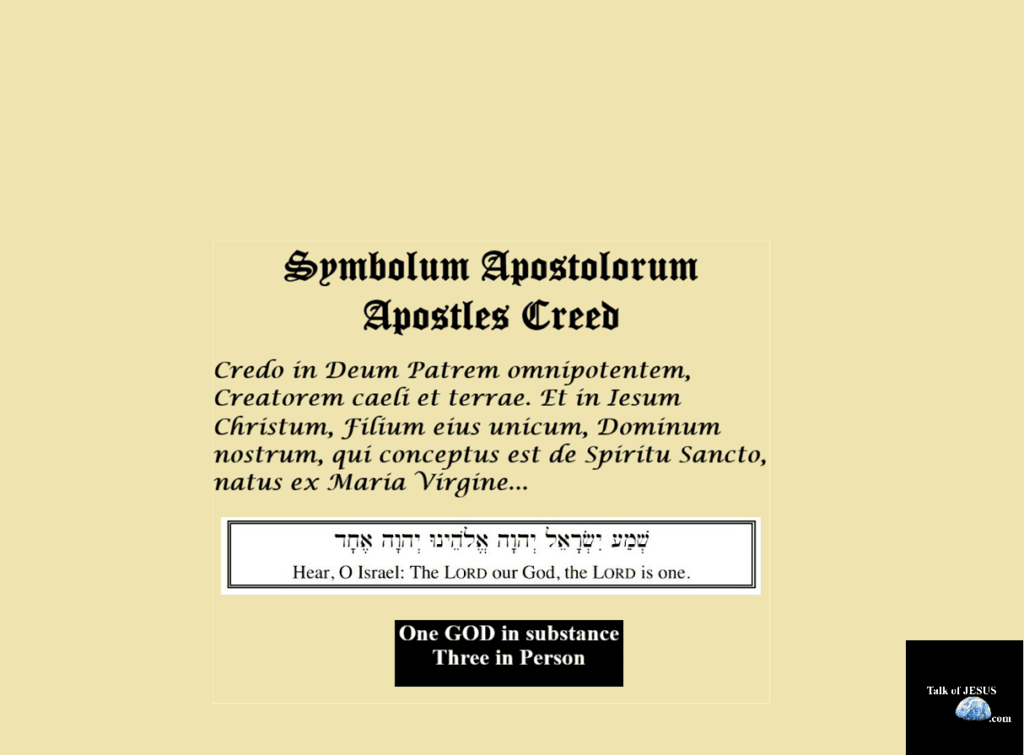
Hear, O Israel: Our God YHWH—YHWH [is] one!
Deuteronomy 6:4 LSV
Hear, H8085 O Israel: The LORD our God is one LORD:
שָׁמַע shâmaʻ, shaw-mah’; a primitive root;
- to hear intelligently
- (often with implication of attention, obedience, etc.; causatively, to tell, etc.):
- .. witness
God IS ONE!
There are no other gods (though the world worships them).
Yea, they made their hearts as an adamant stone, lest they should hear the law, and the words which the LORD of hosts hath sent in his spirit by the former prophets: therefore came a great wrath from the LORD of hosts.
The One God
WHY is the One God of monotheism the first key doctrine of the Apostles’ Creed?
To begin, God speaks authoritatively through Scripture. The word ‘God’ occurs more than 20,000 times in the BIBLE.
Jesus, born of a Jewish mother, Mary — through Joseph to whom she was betrothed, a son of the house of David — received His covenantal circumcision on the eighth day
— the incarnate Messiah of Israel would have recited the šāmaʿ and later taught directly from it.
the MANY gods of a polytheistic world
Like the Jews, the early saints lived in a polytheistic world, as do Christians now in the Common Era.
- ROMANS worshiped many gods.
- GREEK gods were created from their ancient myths.
- (Even Zeus was born from other gods, therefore created and not an eternal being.)

330 million gods, ~20 deities of India,
(where Hinduism remains practically the State religion).
Largest number of Buddhists live in ‘modern‘ China plus Buddhism is the State religion of at least four Asian nations

and practiced in other countries —
yoga, meaning “to yoke” or “union” (from the Sanskrit root yuj), has its genesis in ancient India,
Karma Yoga (the yoga of action),
Bhakti Yoga (the yoga of devotion), and
Jnana Yoga (the yoga of knowledge) – source: yoga.org

The Father Almighty
And when Abram was ninety years old and nine, the LORD appeared to Abram, and said unto him,
I am the Almighty God;
walk before me, and be thou perfect.
Genesis 17:1 KJV
Hear of Israel (Jacob, that is), sons of David, of Moses, of Jacob and Isaac — and ALL sons of our father Abram, who the LORD named, Abraham:
Creator of heaven and earth
Not only is the One God and Father of all fathers, including the Father of Israel, Abraham, the ALMIGHTY, IS Creator of the heavens and the earth.
God is NOT the earth. Nor is the Almighty many gods of the heavens named for suns and planets and meteoric phenomena beyond the reach of man’s understanding.
Have we not all one father?
hath not one God created us?
why do we deal treacherously every man against his brother, by profaning the covenant of our fathers?
Malachi 2:10 KJV
Yet THE LORD GOD will bring a Redeemer to Israel and reveal a new covenant to the nations in a Person who was from the beginning.
In the beginning was the Word,
Gospel of John 1:1 KJV
and the Word was with God,
and the Word was God.
Trinity — Father, Son, Holy Ghost (or Holy Spirit)
As Scripture states:
GOD IS ONE IN ESSENCE,
and as the Gospel reveals,
THREE IN PERSON.
More on Trinity from R.C. Sproul
